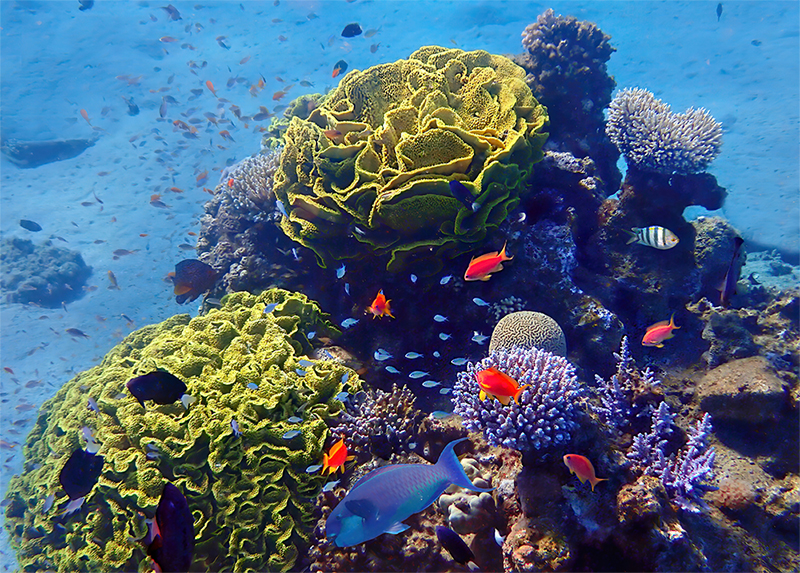EUNICE launches four new online courses on Marine Ecosystem Conservation

Estuaries, mangroves, reefs are some examples of marine ecosystems
These self-paced open courses can be taken until 31 January. This initiative is fruit of the collaboration with IHCantabria
EUNICE European University offers until 31 January 2025 four new massive open online courses (MOOCs) to acquire world-class knowledge on conservation and sustainable management of coastal ecosystems in the context of climate change.
These self-study courses are designed for individuals seeking specialized skills in coastal ecosystem sustainability through a multidisciplinary, practical, and integrated approach: graduates, undergraduates, postgraduates, and vocational training students, with an environmental qualification profile, as well as technical professionals from various sectors.
These MOOCs have been developed under the coordination of IHCantabria, the Environmental Hydraulics Institute of the University of Cantabria, in the framework of TRASMARES Erasmus+ Project (Specialized Training on Applied tools for Sustainable Marine Ecosystems). They can be taken separately, but together they also build a comprehensive training programme provided as a Certificate of Microcredential of the University of Cantabria (more information available at the UC).
More information about the courses on Sustainable Marine Ecosystems and how to register can be found at the EUNICE Course Catalogue (eunice-university.eu/courses):
- “Innovative methods for assessing marine ecosystem distribution” includes highlights of the most representative coastal ecosystems, their characteristics, functions and services.
- “Human activities and vulnerability of marine ecosystems” approaches possible strategies to reduce damages caused by society and, at the same time, improve the benefit for human populations.
- “Nature-based solutions as proactive approaches to conservation” discover the concept of NbS with real-world and practical examples.
- “Land-sea-ocean interactions: from coastal management to maritime spatial planning” allows to learn about the legal framework that regulates the coast, some of the most representative coastal management tools and practical cases of real application.
To complete any of these courses, it is necessary to go through the learning contents and pass the auto-evaluation tests and interactive activities established in each module, of a course. Once a course is completed successfully, participants can download an individual certificate of completion for that MOOC.



